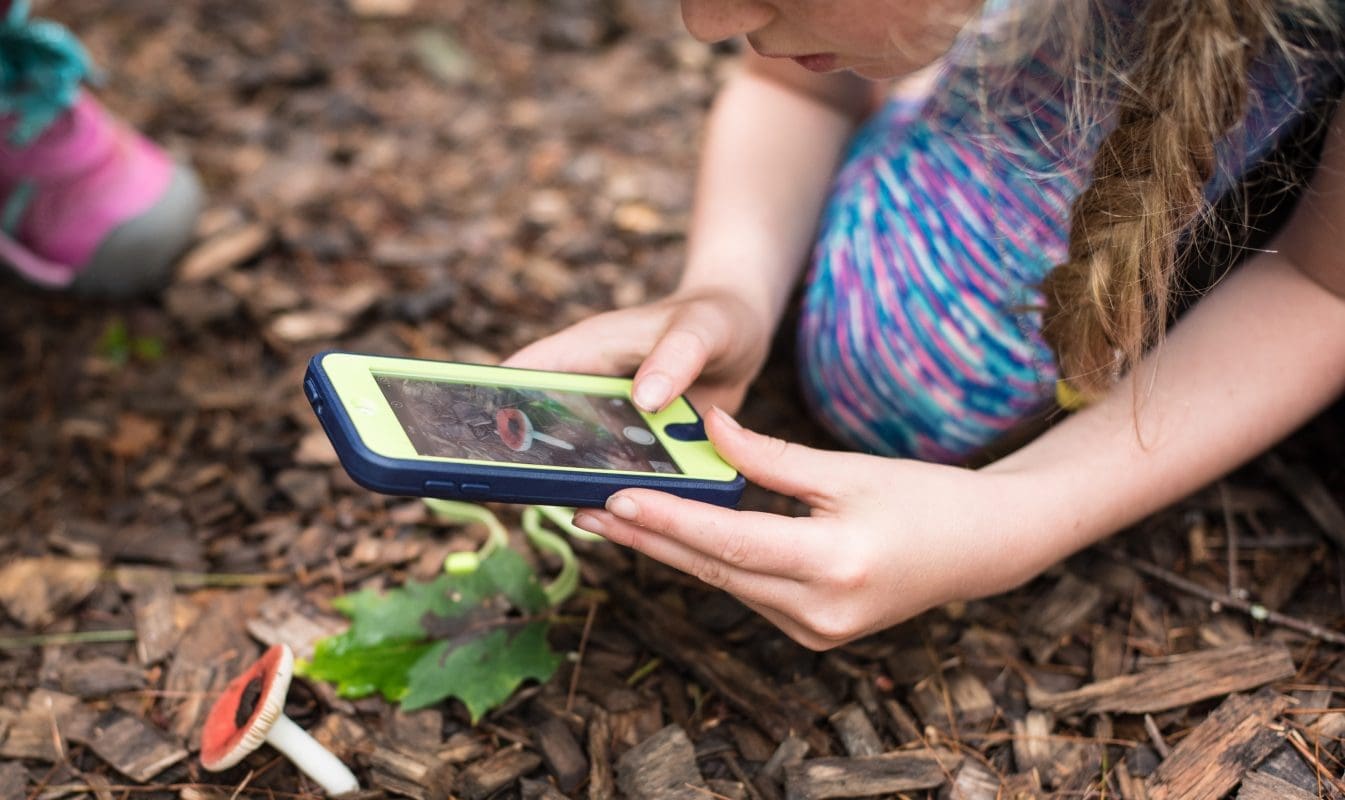
On October 12, 2020, The NC Arboretum hit a remarkable milestone: the UNC System affiliate has amassed more than 20,000 contributions to global scientific research.
This ongoing work hasn’t been taking place in sterilized laboratories. It has unfolded on trails, backyards, and sidewalks all across the state and beyond. And, the individuals conducting the research aren’t in starched white lab coats with pocket protectors. North Carolina’s K-8 children, from all walks of life, are out in the field collecting data that will help scientists and resource managers understand where organisms live and flourish.
The NC Arboretum’s ecoEXPLORE program has immersed hundreds of the state’s youngest budding scientists in the natural world, observing and recording the flora and fauna they discover.
The program has thrived for five years, but during the statewide pandemic slow down, interest in ecoEXPLORE has come into full bloom. This surge in popularity has a global impact. Not only is it helping to generate valuable data that can support ongoing research, it is also propagating the next generation of scientists, whose diversity of perspectives and experiences will help make North Carolina stronger.
Helping Children and Families Get Outdoors and Stay Active During the Great Lockdown
Funded initially through a Burroughs Wellcome Fund grant, ecoEXPLORE’s 2015 pilot program narrowly targeted Buncombe County students. Since then, the program has expanded into 87 counties, and organizers have their sights set on having a presence in all 100 counties before long.
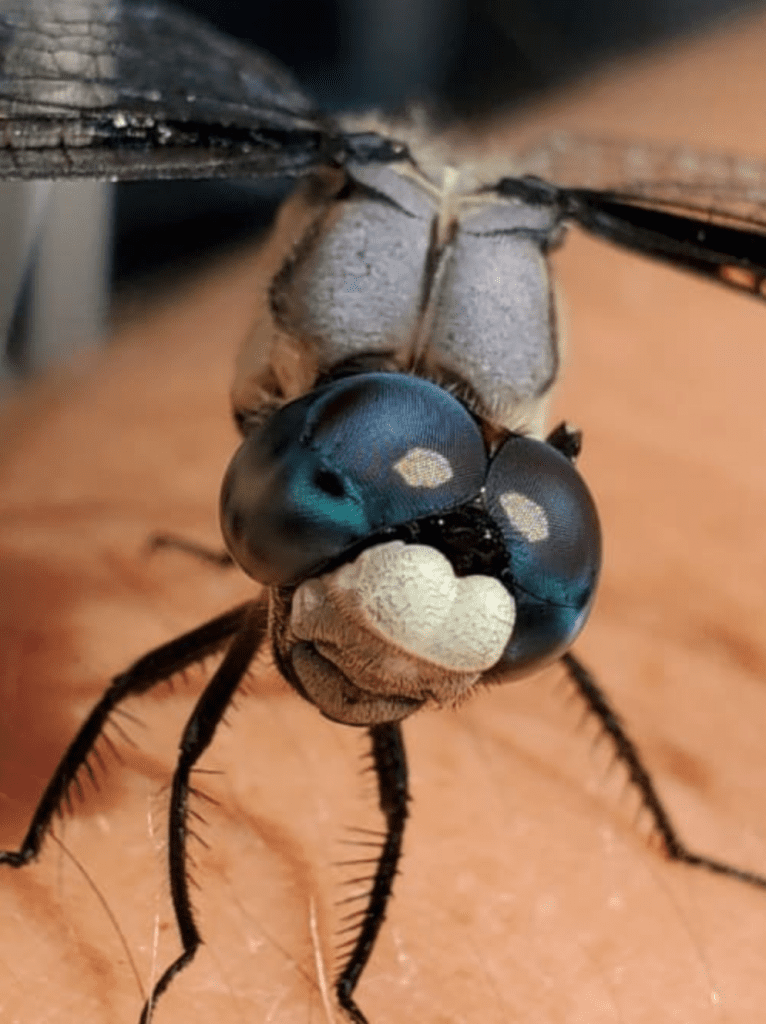
Every quarter, ecoEXPLORE focuses on a particular theme. Over the course of each thematic season, participants pursue a core goal: to photograph at least six specimens found in the natural world. This fall, for example, it’s Entomology Season at ecoEXPLORE, and hundreds of pictures of creeping, crawling, and slithering bugs have swarmed into the program, just in time for Halloween.
In addition, participants receive weekly challenges designed to enhance their appreciation and understanding of the seasonal theme. They might be asked to watch a brief educational video, to complete an interactive exercise, or to explore an issue through another organization’s website.
As they complete these challenges, ecoEXPLORErs accumulate points. These points count toward badges, and they also double as collateral that can be used to earn prizes: binoculars, a trail camera, a bat detector, an iPod Touch, and many other options that can help these young scientists harness their STEM curiosity.
Participation in ecoEXPLORE was already robust before 2020. But as schools and businesses went quiet in response to COVID-19, interest in the program increased by 350 percent. Participants log roughly 100-150 observations per week.
“Our activities give children a creative outlet. It’s the kind of online learning that people really respond to. What’s especially interesting is that, in many cases, parents and grandparents are just as engaged as the children. These activities give both children and adults a motivation to get outside and get active, together. The program is essentially promoting family bonding through intergenerational learning.”
Jonathan Marchal, director of education at the Arboretum and creator of the ecoEXPLORE program
NC’s Young Scientists, Contributing to Global Research
As ecoEXPLOREr photo submissions filter in, program staff evaluate their quality. Images with enough clearly rendered details to allow for accurate species identification are submitted to the program’s unique project on the iNaturalist website.
iNaturalist is the social media site for citizen scientists. It’s a space where individuals across the world share their photos (called “observations”) and ask for help identifying specimens. It’s here where the broad impact of the ecoEXPLORE program becomes immediately apparent.
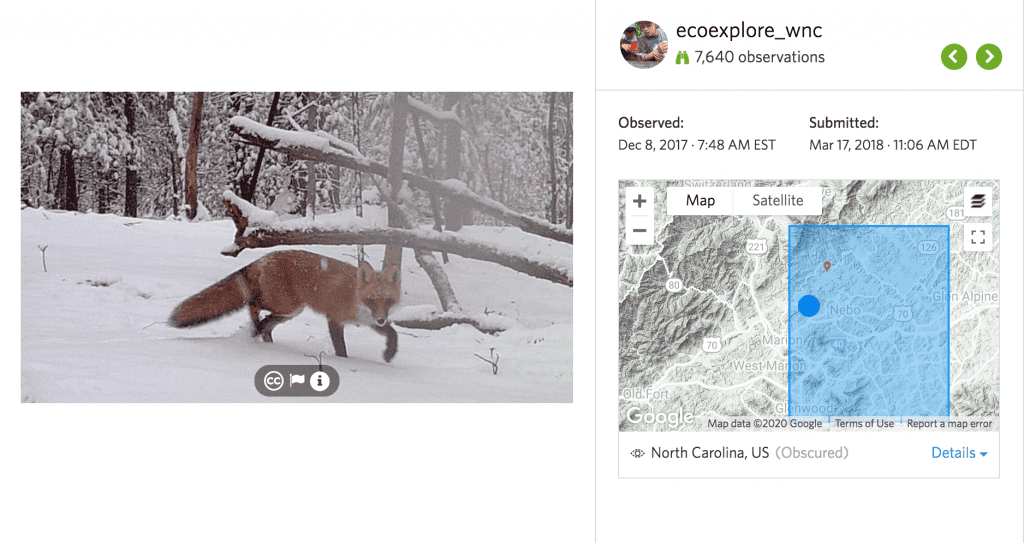
A ticker at the top of the page keeps track of ecoEXPLORE submission stats. By mid-October, the program had logged more than 20,000 observations, capturing more than 2,000 different species.
These submissions make a difference to science.
“If you take a picture of a butterfly, you may be the only person in the entire world who knew where that butterfly was at that particular moment,” enthused Marchal.
iNaturalist shares these observations with the Global Biodiversity Information Facility and other international data repositories. In turn, scientists and resource managers can use this information to study and track the health of animal and plant populations.
STEM Is For Everyone
ecoEXPLORE will have an even more sustained impact as well. The program instills, at a very early age, the important lesson that anyone and everyone can become a scientist.
“Social influences convince young girls and children from underrepresented communities that science isn’t for them. As they grow older, these lessons linger and prevent some students from choosing STEM [science, technology, engineering, and math] majors,” said Marchal. “We are trying to dispel those stereotypes about what scientists look like and where they work. A goal is to create more diversity across North Carolina’s scientific community. This will broaden our perspective and lead to more creative and inclusive solutions to our state’s challenges.”
To this end, ecoEXPLORE puts participants in contact with science experts from different communities across the state, specializing in a variety of areas. In-depth videos transform these professionals into role models who encourage students from all walks of life to cultivate, not stifle, their interests.
Not only do the ecoEXPLORErs learn that anyone can become a scientist. They also learn that science can be studied anywhere.
“Through the generosity of the NC GlaxoSmithKline Foundation and support from the UNC System and many of our sister institutions, ecoEXPLORE has had the resources and staffing to carry out our goal of reaching the entire state. Through innovative virtual programming and strong partnerships, we are leading the way in engaging children in science early on and bringing their entire family along for this educational experience.”
George Briggs, executive director of The NC Arboretum
Through the program’s activities, participants realize that scientists don’t need to drive to a state park or national forest to observe the natural world. Nature exists in the trees lining an avenue and in the cracks running through sidewalks.
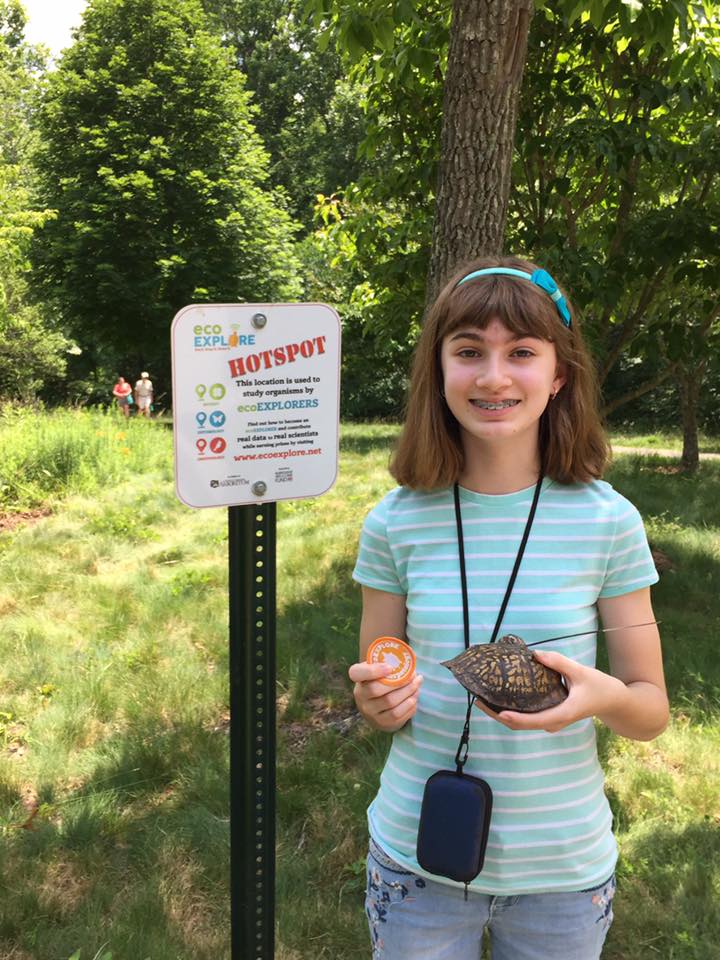
To increase access into the ecoEXPLORE program, organizers have focused on establishing nature “hotspots” throughout the state. If things proceed apace, soon every North Carolina county will have at least one dedicated space, like a public library or an area park, where participants can safely engage with program activities and, in some cases, check out equipment to help them tap into the natural world.
In addition, The NC Arboretum has partnered with other institutions and organizations, such as The Greensboro Science Center and the Outer Banks Center for Wildlife Education, to establish regional hubs. These partnerships significantly extend the program’s reach, drumming up keen interest in ecoEXPLORE among students from Murphy to Manteo.
Global Reach, Local Impact
A map identifying the location of every participant observation sits prominently in the middle of the ecoEXPLORE project page on iNaturalist. Users can click on the red dot to see the photograph that was taken at that spot, as well as the discussion and dialogue the image has provoked.
Not surprisingly, the counties surrounding The NC Arboretum are drenched in red pinpoints, illustrating the program’s epicenter. More tellingly, these observation points reach from the mountains to the coast, reflecting how this innovative program’s impact has rippled across the state.
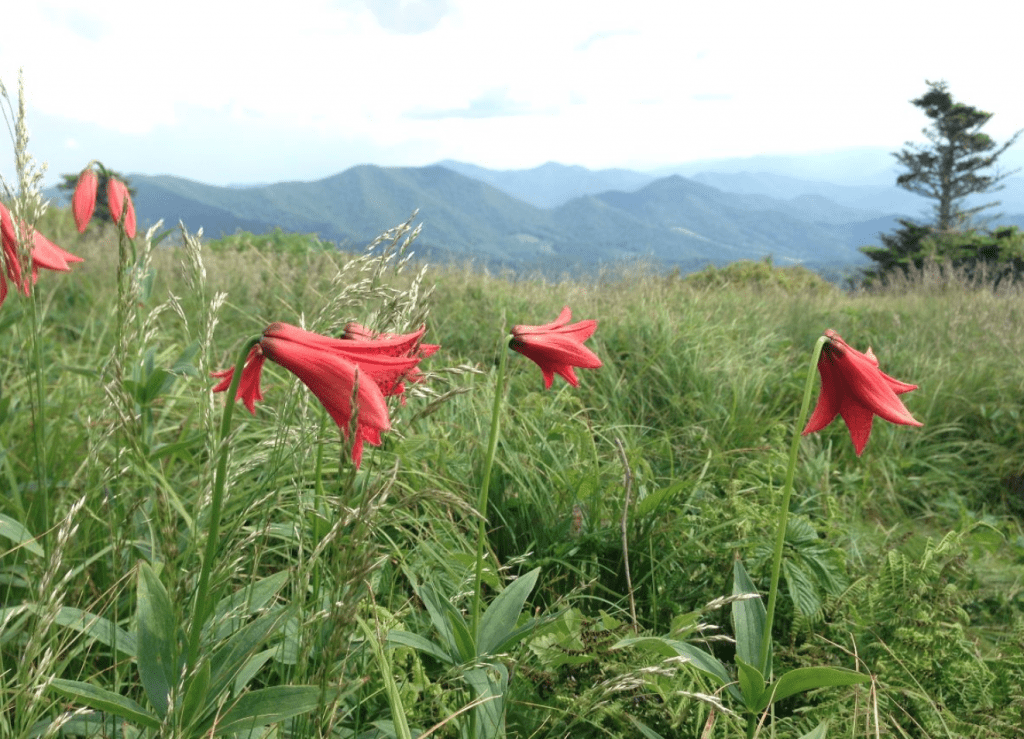
Users who scroll outward will notice something even more surprising: ecoEXPLORErs have contributed observations from up and down the Eastern Seaboard, across the Midwest, and along the Pacific coastline. Scrolling outward further, users will notice observations from as far away as the United Kingdom, Kenya, and Saudi Arabia.
What does this reveal? Even as North Carolina’s young, budding scientists travel the world on family vacations and school trips, they remain engaged with the program.
This bodes well for our state, whose health care system, technological and agricultural industries, and resource management efforts depend on training and retaining top-tier STEM talent. No matter where these young ecoEXPLORErs go, they still have their sights set on home.
Programs like ecoEXPLORE increase the odds that this commitment to North Carolina will continue into adulthood.